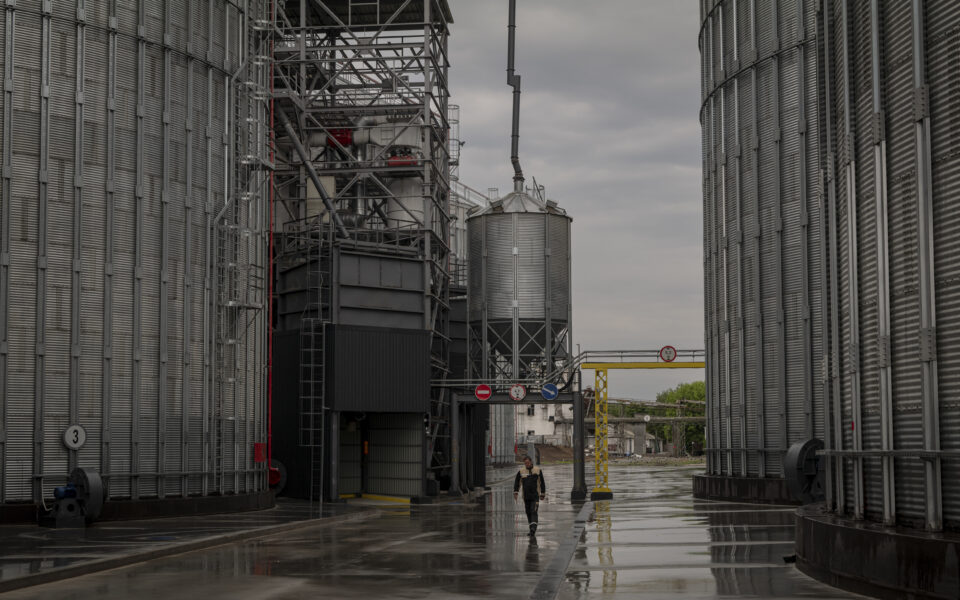Deal between Ukraine and Russia aims to ease global food crisis

Russia and Ukraine signed an agreement in Istanbul on Friday to free more than 20 million metric tons of grain stuck in blockaded Black Sea ports in Ukraine, a deal aimed at bringing down soaring grain prices and alleviating a mounting global hunger crisis.
The breakthrough comes after months of talks and was brokered with the help of the United Nations and Turkey. The agreement provides a method for exporting Ukrainian grain through Turkey, and it comes after the United Nations gave Russia assurances that it can export its grain and fertilizers.
If the agreement holds, it could help ease catastrophic food shortages that worsened when Russia invaded Ukraine in February. Ukraine is one of the world’s breadbaskets, and the invasion reverberated across the global economy, aggravating a growing food crisis, contributing to famine in Africa and threatening political unrest in some countries.
“This agreement did not come easy,” António Guterres, the U.N. secretary-general, said at the signing ceremony, calling the deal a “beacon in the Black Sea.”
Russian President Vladimir Putin’s willingness to block food exports to gain international leverage has led to some of the gravest global consequences of Moscow’s attack on Ukraine, undermining a global food distribution network that was already strained by pandemic-related disruptions and climate change.
Senior U.N. officials said that the first shipments of grain out of Odesa, Ukraine, and neighboring ports were only weeks away and would quickly bring 5 million metric tons of Ukrainian grain and other foodstuffs to the world market each month. That would also free up storage space in Ukraine’s silos for freshly harvested grain, the officials said.
Ukraine and Russia have agreed on very little since Russia’s full-scale invasion of Ukraine began Feb. 24. Peace talks held in Belarus that month and in March went nowhere, largely because Russia insisted on a change of government in Kyiv, Ukraine. Later in March, talks in Turkey were also ultimately fruitless.
Negotiators have been able to reach agreements on prisoner exchanges and on the evacuation of a steel plant in Mariupol where hundreds of Ukrainian soldiers and civilians were holed up for 80 days.
But Friday’s pact was the first time that representatives from the warring countries have publicly signed an agreement.
“It’s a big step forward,” said Stephen E. Flynn, founding director of the Global Resilience Institute at Northeastern University, crediting the Turks with an “elegant approach.”
But he warned that it will be difficult to speedily deliver food to where it is most needed. The mechanics of transporting grain through the Black Sea under wartime conditions with little or no trust between the warring sides are extremely complex.
“It will not move quickly,” he said.
The agreement would expire after 120 days, officials said, but could be renewed on a rolling basis to normalize the export of grain for the months to come.
It contains an express agreement that the commercial and civilian ships involved, as well as the port facilities, will not be attacked. But a senior U.N. official said that the Russian security guarantees did not extend to parts of the Ukrainian ports not directly used for the grain exports.
Under the terms of the deal, Ukrainian captains will steer the vessels with grain out of Odesa and neighboring ports of Chernomorsk and Yuzhne through safe passages mapped by the Ukrainian navy to avoid mines.
A joint command center with Russian, Ukrainian, Turkish and U.N. officials will be set up in Istanbul as of Saturday, the U.N. officials said, and teams from all three countries and the United Nations will jointly inspect the vessels to ensure that they are not carrying weapons back to Ukraine once they have unloaded their cargo of grain.
The deal seemed unlikely just two weeks ago, considering the deep mistrust between the warring parties and the apparent dearth of incentives for Russia to sign off on it. But part of the U.N.’s work focused on convincing private-sector shipping and insurance companies that they could transport Russian foods and fertilizers out of Russia without running afoul of U.S. and EU sanctions.
[This article originally appeared in The New York Times.]






